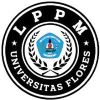THE EFFECT OF USING ROLE-PLAY METHOD IN IMPROVING SPEAKING SKILLS OF BASIC LEVEL STUDENTS AT CENTRAL COURSE
DOI:
https://doi.org/10.37478/jpm.v6i1.5190Abstract
This article examines the impact of employing the Role-Play method in improving the speaking skills of basic-level English learners in the Central English Course. Speaking a foreign language often presents challenges, particularly for beginner students who lack confidence and opportunities for practical application. Role-play, an interactive teaching strategy, fosters real-world communication by creating scenario-based learning environments, enabling students to engage in language use actively. A quantitative approach was adopted to assess the effectiveness of the Role-Play method. The research involved two groups: an experimental group participated in role-play activities and a control group followed traditional teaching methods. In this study, quantitative data were collected through pre-test and post-test assessments to measure the effectiveness of the Role-Play method in improving students' learning progress in fluency, accuracy, and confidence. This approach enabled precise statistical calculations and pattern identification, providing valuable insights into the impact of the intervention. The findings indicate that the Role-Play method significantly enhances language acquisition, with the experimental group demonstrating greater improvements in EFL students’ speaking skills than the control group. This study underscores the value of integrating interactive and practical approaches into EFL classrooms. Role-play is a useful tool to connect classroom learning with authentic communication experiences, allowing students to apply theoretical knowledge in meaningful, real-world contexts. This research provides valuable insights into innovative pedagogical methods for foreign language learning.
Downloads
Keywords:
Role-Play Method, Speaking Skills, Interactive Learning, Central CourseReferences
Ali, B. J., & Anwar, G. (2021). Vocabulary Learning Strategies and Foreign Language Acquisition at Private Schools. International Journal of English Literature and Social Sciences, 6(3), 163–173. https://doi.org/10.22161/ijels.63.24
Aliakbari, M., & Jamalvandi, B. (2010). The Impact of" Role Play" on Fostering EFL Learners’ Speaking Ability: A Task-Based Approach. Journal of Pan-Pacific Association of Applied Linguistics, 14(1), 15–29. https://eric.ed.gov/?id=EJ920501
Dwiyanti, A., & Lolita, Y. (2023). The Effectiveness of Role Play in Improving Speaking Skill of EFL Students. Prosodi, 17(2), 138–148. https://doi.org/10.21107/prosodi.v17i2.17064
FITRIANA, D. (2022). THE COMPARISON OF STUDENTS’SPEAKING ACHIEVEMENT WITH DIFFERENT LEVELS OF ANXIETY BETWEEN THE STUDENTS TAUGHT THROUGH ROLE PLAY AND THINK PAIR SHARE AT THE NINTH GRADE OF MTS N 2 BANDAR LAMPUNG IN THE ACADEMIC YEAR OF 2021/2022. UNIVERSITAS LAMPUNG. http://digilib.unila.ac.id/id/eprint/64765
Harmer, J. (2001). The practice of English language teaching. London/New York, 401–405. https://archive.org/details/practiceofenglis0000harm
Hia, M. M., Muhyidin, M. S., & Setyawan, W. H. (2024). THE EFFECTIVENESS OF USING DUOLINGO IN TEACHING VOCABULARY TO CAMP CLASS AT LANGUAGE CENTER. Celtic: A Journal of Culture, English Language Teaching, Literature and Linguistics, 11(2), 293–305. https://doi.org/10.22219/celtic.v11i2.37562
Ishak, S. A., & Aziz, A. A. (2022). Role play to improve ESL learners’ communication skills: A systematic review. International Journal of Academic Research in Business and Social Sciences, 12(10), 884–892. http://dx.doi.org/10.6007/IJARBSS/v12-i10/14851
Karmila, N. (2023). Penerapan Role Play untuk Meningkatkan Keterampilan Berbicara Siswa dalam Pembelajaran Bahasa Inggris di Kelas IX SMP Negeri 1 Bonjol. Pedagogika: Jurnal Ilmu-Ilmu Kependidikan, 3(2), 231–237. https://doi.org/10.57251/ped.v3i2.1290
Katemba, C. V, & Grace, R. M. (2023). Role-Playing Improves Speaking Proficiency Skills. Acuity: Journal of English Language Pedagogy, Literature and Culture, 8(2), 244–268. https://doi.org/10.35974/acuity.v8i2.3153
Krashen, S. (1982). Principles and practice in second language acquisition. https://d1wqtxts1xzle7.cloudfront.net/56454923
Lubis, C., & Nasution, S. (2024). Pengaruh Metode Role Playing Terhadap Peningkatkan Keterampilan Berbicara Siswa Pada Mata Pelajaran Bahasa Indonesia kelas V di Madrasah Ibtidaiyah. Didaktika: Jurnal Kependidikan, 13(2), 2017–2028. https://doi.org/10.58230/27454312.756
Maarof, N. (2018). The effect of role-play and simulation approach on enhancing ESL oral communication skills. International Journal of Research in English Education, 3(3), 63–71. https://doi.org/10.29252/ijree.3.3.63
Paul, R., Norbury, C., & Gosse, C. (2018). Assessing students’ language for learning. Language Disorders from Infancy Through Adolescence, 440–502. https://doi.org/10.1016/b978-0-323-44234-3.00020-8
Piaget, J. (2005). The psychology of intelligence. Routledge. https://psycnet.apa.org/record/1961-02200-000
Puspitasari, H., Maharani, R. F., Setyawan, W. H., & Primasari, Y. (2022). Android-Based Mobile Application for Vocabulary Learning. Jurnal Pendidikan Dan Pengajaran, 55(3). https://doi.org/10.23887/jpp.v55i3.40661
Putri, A. Y., Setyawan, W., & Prasongko, A. (2024). Students’ Perceptions of English Language Learning Game-Based: A Case Study of Google Quizzes. EDUKASIA: Jurnal Pendidikan Dan Pembelajaran, 5(1), 2129–2134. https://doi.org/10.62775/edukasia.v5i1.1197
Richards, J. C. (2001). The Role of Textbooks in a Language Program. Cambridge University Press. https://www.professorjackrichards.com/wp-content/uploads/Curriculum-Development-Review-by-Meredith-MacAulay.pdf
Richards, J. C. (2005). Communicative language teaching today. SEAMEO Regional Language Centre Singapore. https://cambridge.hwatai.com.tw/webpage/09/e_connection/march/communicative%20language%20teaching%20today%20ch1.pdf
Rohm, A. J., Stefl, M., & Ward, N. (2021). Future proof and real-world ready: the role of live project-based learning in students’ skill development. Journal of Marketing Education, 43(2), 204–215. https://doi.org/10.1177/02734753211001409
Ruzmetova, M. A. (2022). BENEFITS OF ROLE-PLAY ACTIVITIES IN TEACHING FOREIGN LANGUAGES. Academic Research in Educational Sciences, 3(2), 203–207. https://cyberleninka.ru/article/n/benefits-of-role-play-activities-in-teaching-foreign-languages
Setyawan, W. (2020). Qualified Lecturers Must Update By Educational Technology. In Initiative of Thoughts from Indonesia to the World of the Covid 19 era (pp. 175–181). novateurpublication. https://novateurpublication.com/wp-content/uploads/2020/09/28.-WAWAN-HERRY-SETYAWAN.pdf
Setyawan, W. H., & Nawangsari, T. (2021). Pengaruh E-Module Speaking Berbasis Website Untuk Meningkatkan Keterampilan Berbicara. Aksara: Jurnal Ilmu Pendidikan Nonformal, 7(2), 339–346. http://dx.doi.org/10.37905/aksara.7.2.339-346.2021
Setyawan, W., Rahayu, B., Maryam, S., Aslichah, Khoiruddin, H., Muafiqie, M., Ratnaningtyas, R., Nurhidayah, M., & Efendi, M. (2022). Asset Based Community Development (ABCD). http://repository.undar.ac.id/21/12/B-BASSED%20COMUNITY.pdf
Suwito, S., Meviana, I., & Setyawan, W. H. (2025). OPTIMIZING LEARNING OUTCOMES THROUGH PROCESS-BASED DIFFERENTIATED LEARNING AT SMA POMOSDA TANJUNGANOM: AN INNOVATIVE APPROACH. Prima Magistra: Jurnal Ilmiah Kependidikan, 6(1), 12–19. https://doi.org/10.37478/jpm.v6i1.5144
Downloads
Published
How to Cite
Issue
Section
License
Copyright (c) 2025 Wawan Herry Setyawan, Sarifudin Sarifudin

This work is licensed under a Creative Commons Attribution-ShareAlike 4.0 International License.












